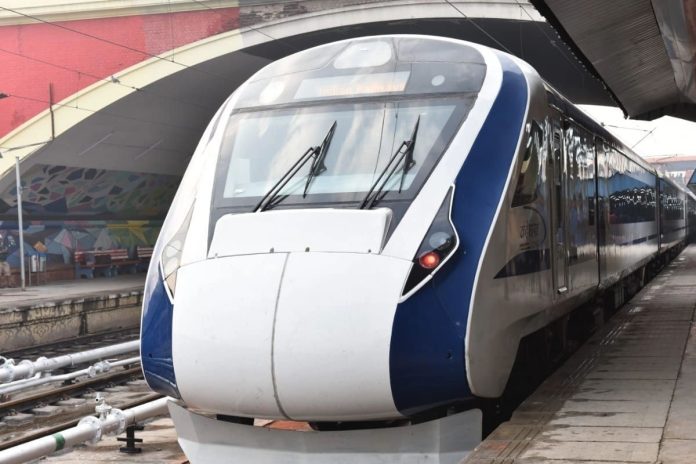Snapshot
Indian Railways plans to roll out semi high-speed freight trains by 2022 end.
If semi high-speed freight is operationalised, the Indian Rail sector will enter a new era by acquiring the capability to manufacture and operationalise semi high-speed trains for passenger, cargo and inter-city transport.
To increase its share in freight transportation from the present 27 per cent to 45 per cent by 2030, Indian Railways plans to roll out semi high-speed freight trains by 2022 end.
Named ‘Gati Shakti,’ the semi high-speed freight train can clock 160 km per hour, and presently plans are to make 25 such trains at the Integral Coach Factory (ICF) in Chennai.
The present freight trains run with a top speed of just 75 kmph.
“The design work for these trains has already started. We have also given the order for material. By December this year, we will be able to manufacture two of these trains,” ICF General Manager A K Agarwal said.
“The Railways is planning to target the e-commerce and courier parcel segment through these trains. Each train will also have refrigerated wagons in the rear end and in the front to carry perishables like milk products, fish, fruit and vegetables,” he added.
The coach will provide electricity connection for these wagons. The rest of the coaches will have rollers for moving the container. Each coach will have two wide doors for loading and unloading the containers.
Railways plans to make a space for itself in India’s E-commerce market by becoming a better option for transporting parcels over long distances.
It must be noted that India’s e-commerce market is expected to reach USD 350 billion by 2030, and even a tiny share of it can garner many dividends.
If semi high-speed freight is operationalised, the Indian Rail sector will enter a new era by acquiring the capability to manufacture and operationalise semi high-speed trains for passenger, cargo and inter-city transport.
‘Vande Bharat’ semi-high speed trains rolled out by Indian Railways have succeeded, and the union government plans to expand the service rapidly.
Indian Railways has floated tenders inviting major rolling stock players to manufacture 200 Vande Bharat trains with AC sleeper facilities at Rs 26,000 crore.
Also, Alstom has successfully delivered India’s first semi high-speed regional train to National Capital Region Transport Corporation (NCRTC) for the 82.5 km long Delhi – Ghaziabad – Meerut Regional Rapid Transit System (RRTS) project.
Designed at Alstom’s Hyderabad engineering centre and manufactured at Savli (Gujarat), these trains, which can move at 180 kmph, are 100 per cent indigenous, in line with the union government’s Make in India programme.


